The 5 Best Conifer Trees for Natural Privacy Fences
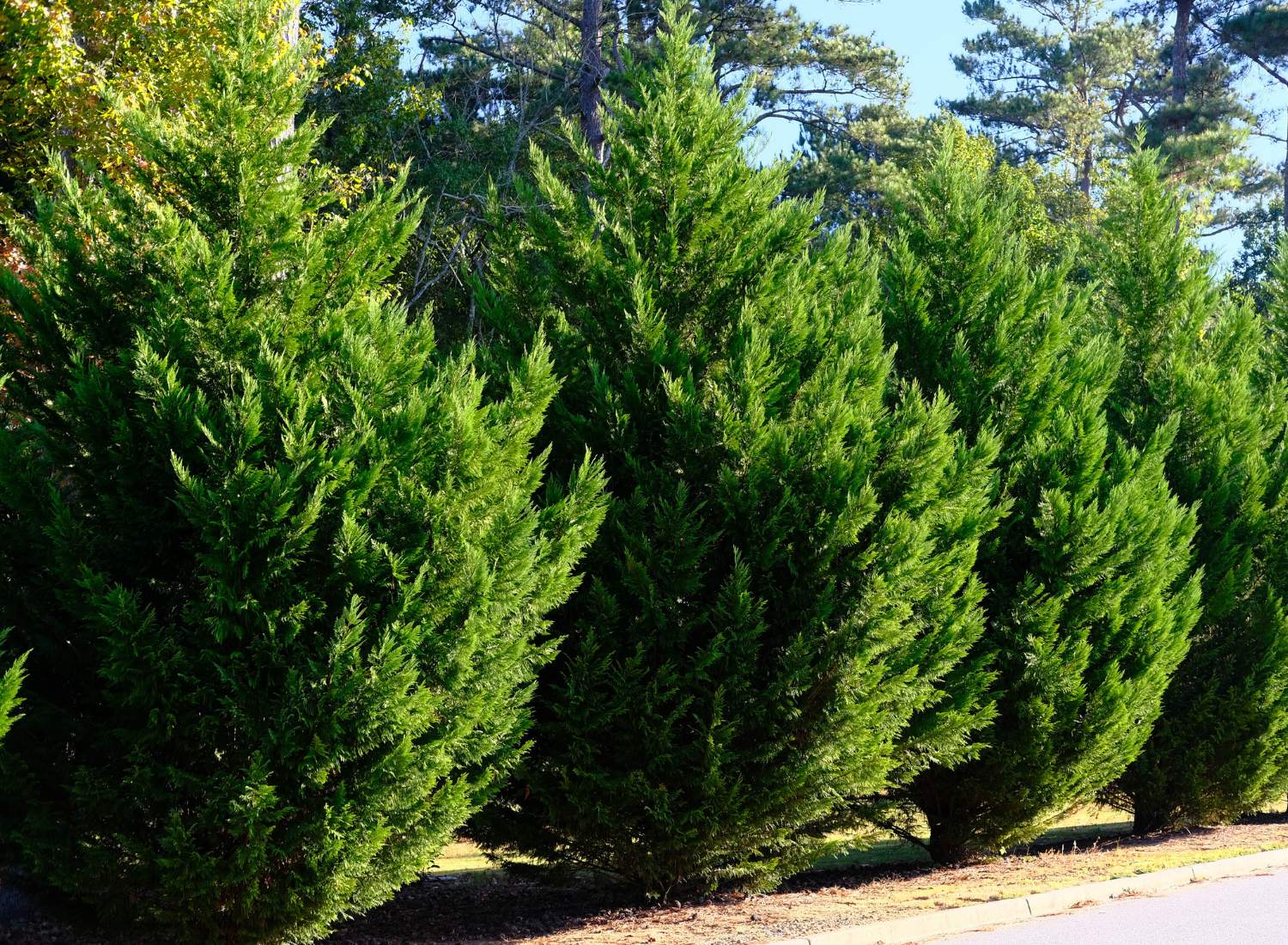
If you’re looking for an elegant, natural way to create privacy between properties, conifer trees are an excellent choice. These evergreen trees provide year-round coverage, add aesthetic value, and often require less maintenance than installing and maintaining a physical fence. However, not all conifers are created equal. Factors like growth rate, maintenance, and cost can significantly influence your decision.
Here are the five best conifer species to consider for natural privacy fences, along with their pros, cons, and care requirements.
Key Factors to Consider When Choosing Conifers
- Growth Rate: Fast-growing species like Leyland Cypress and Arborvitae provide quick coverage but may require more maintenance to manage size.
- Space Availability: Large species like Norway Spruce and Douglas Fir need plenty of room to grow, while Arborvitae is better suited for smaller yards.
- Climate and Soil: Choose a species adapted to your region’s conditions to ensure long-term health.
- Budget: Account for the initial cost of trees, planting, and any ongoing care expenses.
- Wildlife and Allergies: Some trees, like Eastern Red Cedar, attract wildlife, which can be a pro or con depending on your preferences.
1. Arborvitae (Thuja)
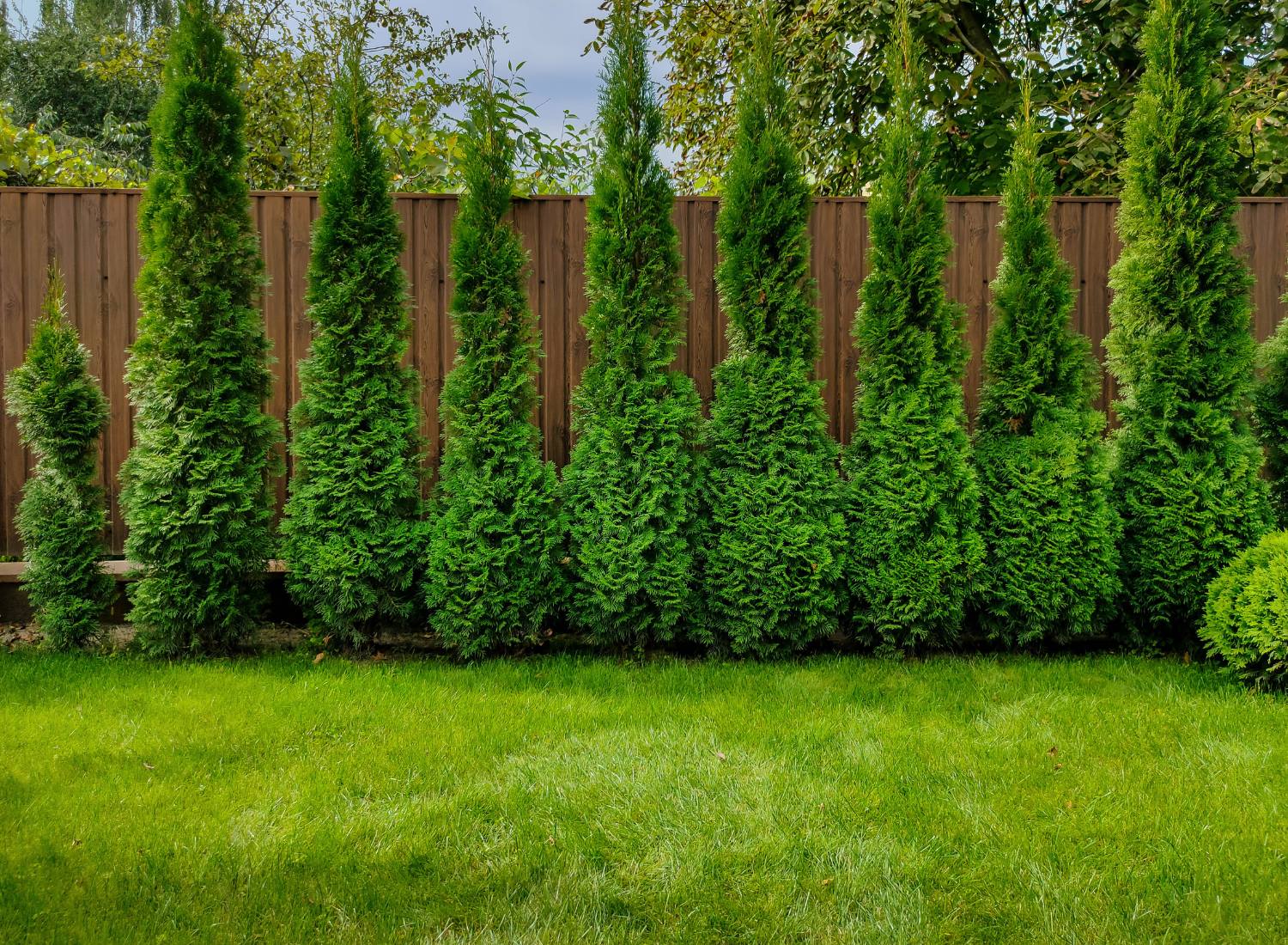
Overview:
Arborvitae is one of the most popular conifers for privacy hedges. These trees are known for their dense, lush foliage and attractive columnar shape, making them ideal for creating a thick, living screen.
Pros:
- Fast Growth: Arborvitae species like Green Giant can grow up to 3 feet per year.
- Low Maintenance: They require minimal pruning and adapt well to various soil types.
- Compact Size: Perfect for smaller yards due to their slim profile.
- Affordable: Widely available and reasonably priced.
Cons:
- Water Needs: Newly planted arborvitae require regular watering to establish roots.
- Pest Susceptibility: Vulnerable to deer browsing, especially in rural areas.
- Wind Damage: Strong winds can damage their delicate branches.
Care Requirements:
Plant arborvitae in well-draining soil with full to partial sunlight. Regular watering during the first year is crucial. Once established, they are drought-tolerant and only need occasional pruning to maintain shape.
2. Leyland Cypress (Cupressus × leylandii)
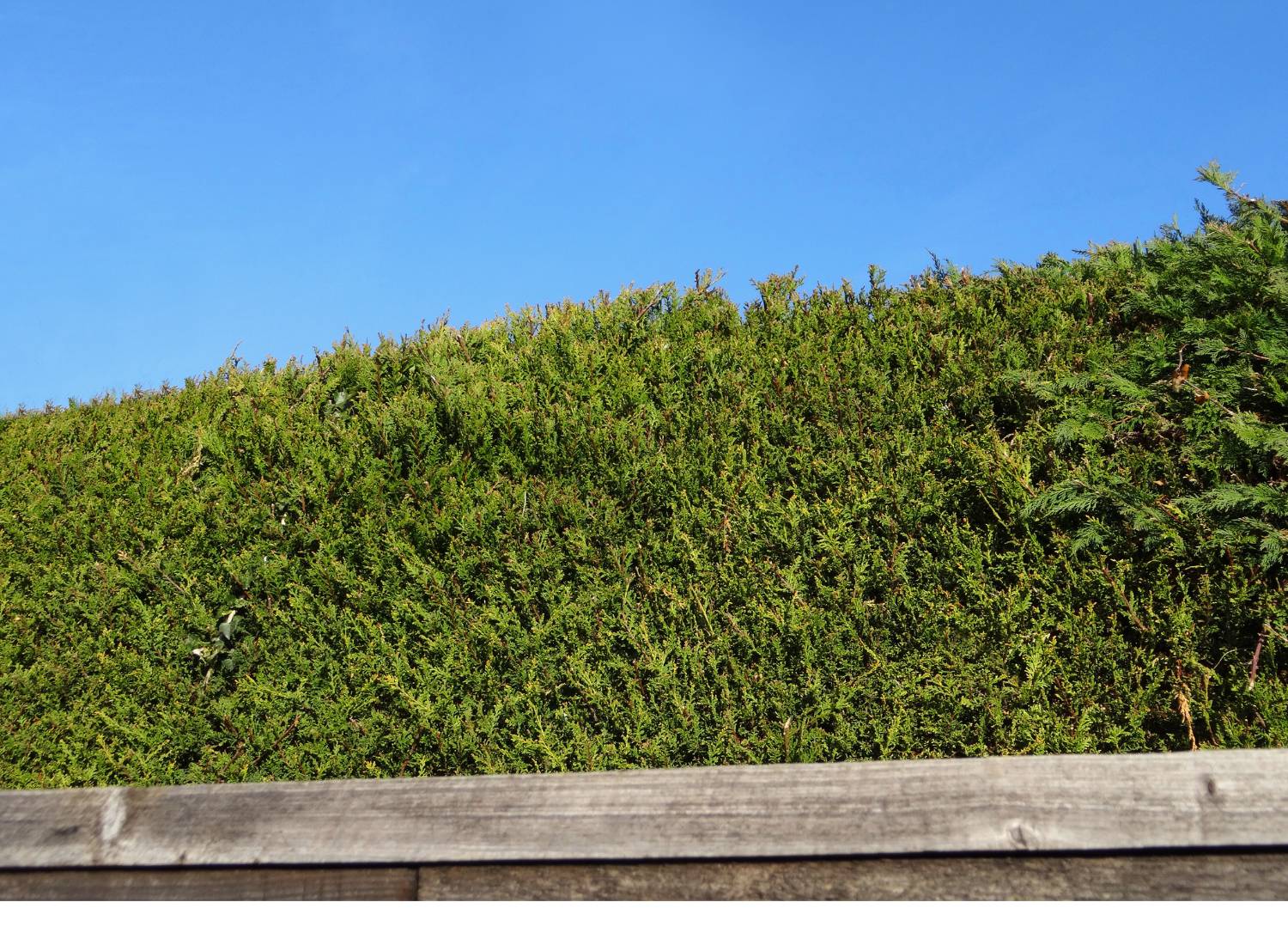
Overview:
Leyland Cypress is a fast-growing hybrid tree that’s a favorite for creating tall privacy fences. It quickly forms a dense, green wall that provides excellent noise and visual screening.
Pros:
- Rapid Growth: It can grow 3-4 feet per year under ideal conditions.
- Tall Height: Reaches up to 50 feet tall, making it suitable for large properties.
- Minimal Pruning: Maintains a uniform shape naturally.
Cons:
- High Water Needs: Requires consistent watering, especially during dry seasons.
- Short Lifespan: Compared to other conifers, Leyland Cypress has a relatively short lifespan of 20-25 years.
- Susceptible to Disease: Prone to fungal diseases, especially in humid climates.
Care Requirements:
Plant in full sun with well-drained soil. Space trees at least 6-8 feet apart to prevent overcrowding. Regular watering is essential, but avoid overwatering to reduce the risk of root rot.
3. Eastern Red Cedar (Juniperus virginiana)
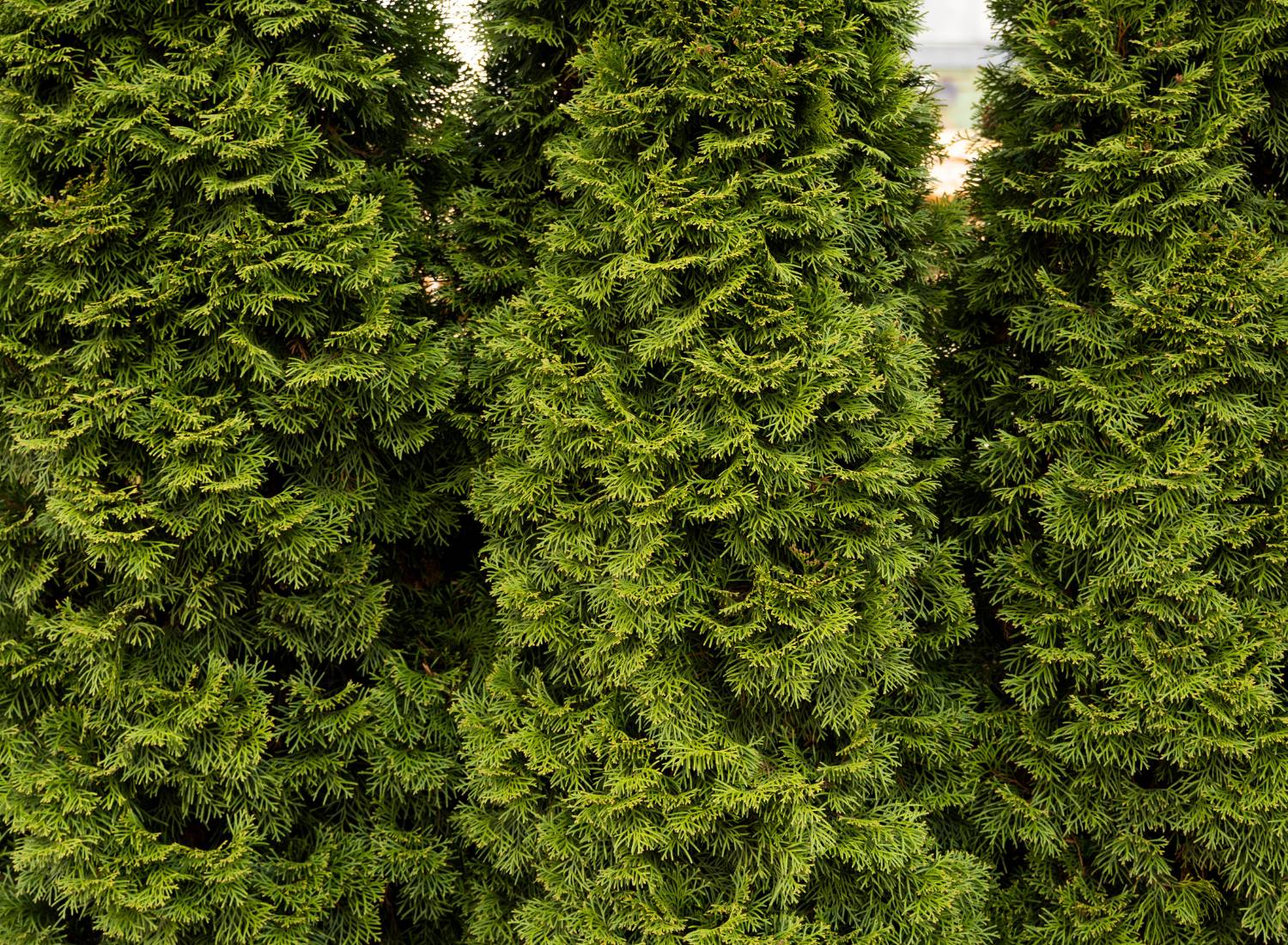
Overview:
Eastern Red Cedar is a hardy native tree that thrives in various climates. Its dense, aromatic foliage makes it a great option for privacy while also adding wildlife value.
Pros:
- Durable: Extremely tolerant of drought, poor soil, and high winds.
- Low Maintenance: Requires minimal care once established.
- Wildlife-Friendly: Provides shelter and food for birds and other wildlife.
- Long-Lived: Can live for decades, making it a lasting investment.
Cons:
- Moderate Growth Rate: Typically grows 12-18 inches per year, slower than some other species.
- Broad Spread: Can take up more space than columnar conifers.
- Allergenic Pollen: Produces pollen that can trigger allergies in some people.
Care Requirements:
Eastern Red Cedar prefers full sun and well-drained soil but can adapt to less-than-ideal conditions. Prune as needed to maintain shape and prevent overgrowth.
4. Norway Spruce (Picea abies)
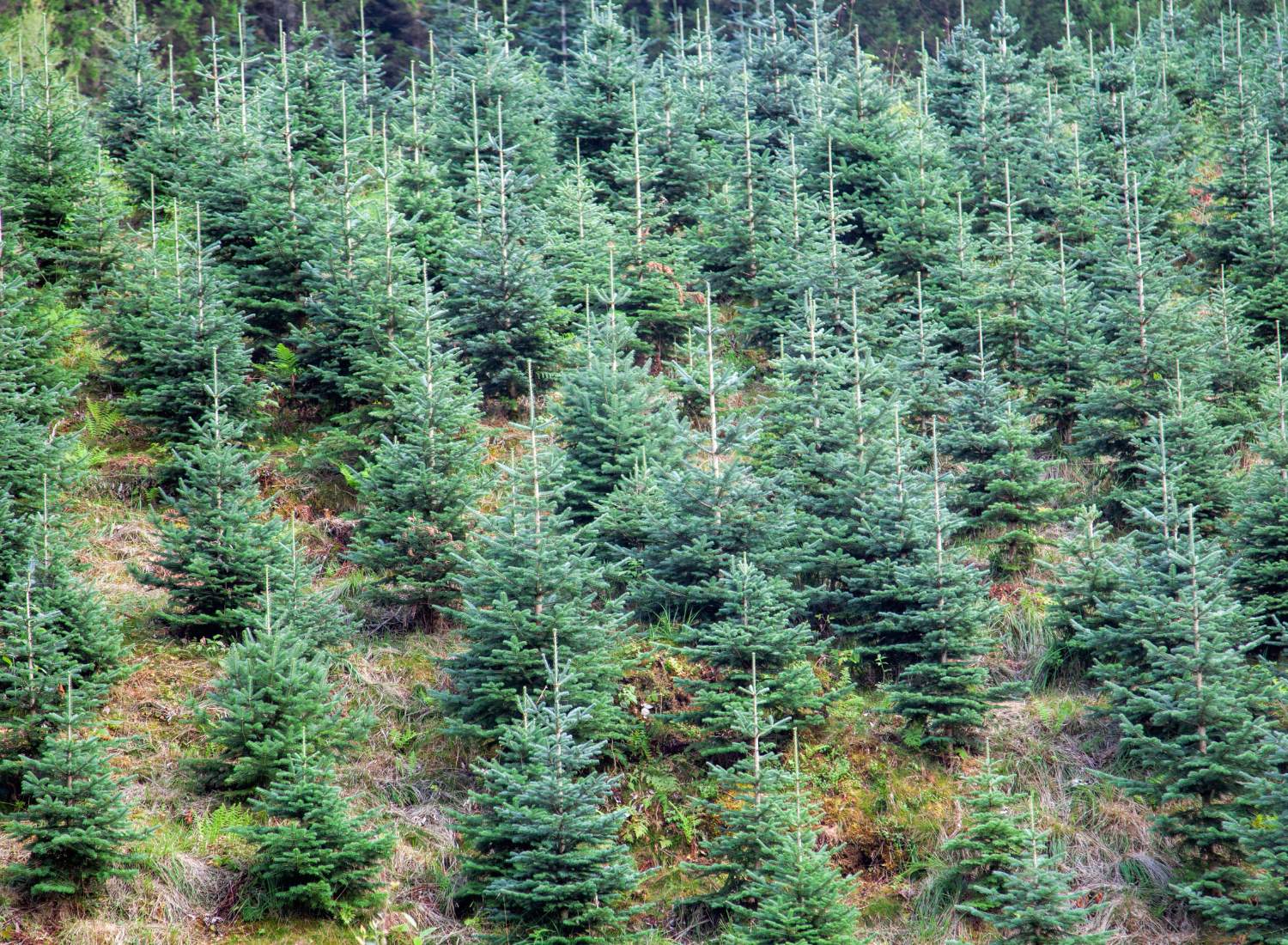
Overview:
Norway Spruce is a robust and versatile conifer with graceful, drooping branches. It grows quickly and forms a dense barrier, making it a great choice for privacy.
Pros:
- Fast Growth: Can grow 2-3 feet per year.
- Cold Tolerance: Thrives in colder climates and can withstand harsh winters.
- Wind Resistance: Strong branches make it a good option for windy areas.
Cons:
- Large Size: Grows up to 60 feet tall, which may be excessive for small properties.
- High Water Needs: Requires consistent moisture, especially during dry spells.
- Maintenance: Needles can drop, creating additional cleanup.
Care Requirements:
Plant in full sun with well-draining soil. Ensure consistent watering, especially during dry periods. Pruning is rarely necessary but can help maintain a uniform appearance.
5. Douglas Fir (Pseudotsuga menziesii)
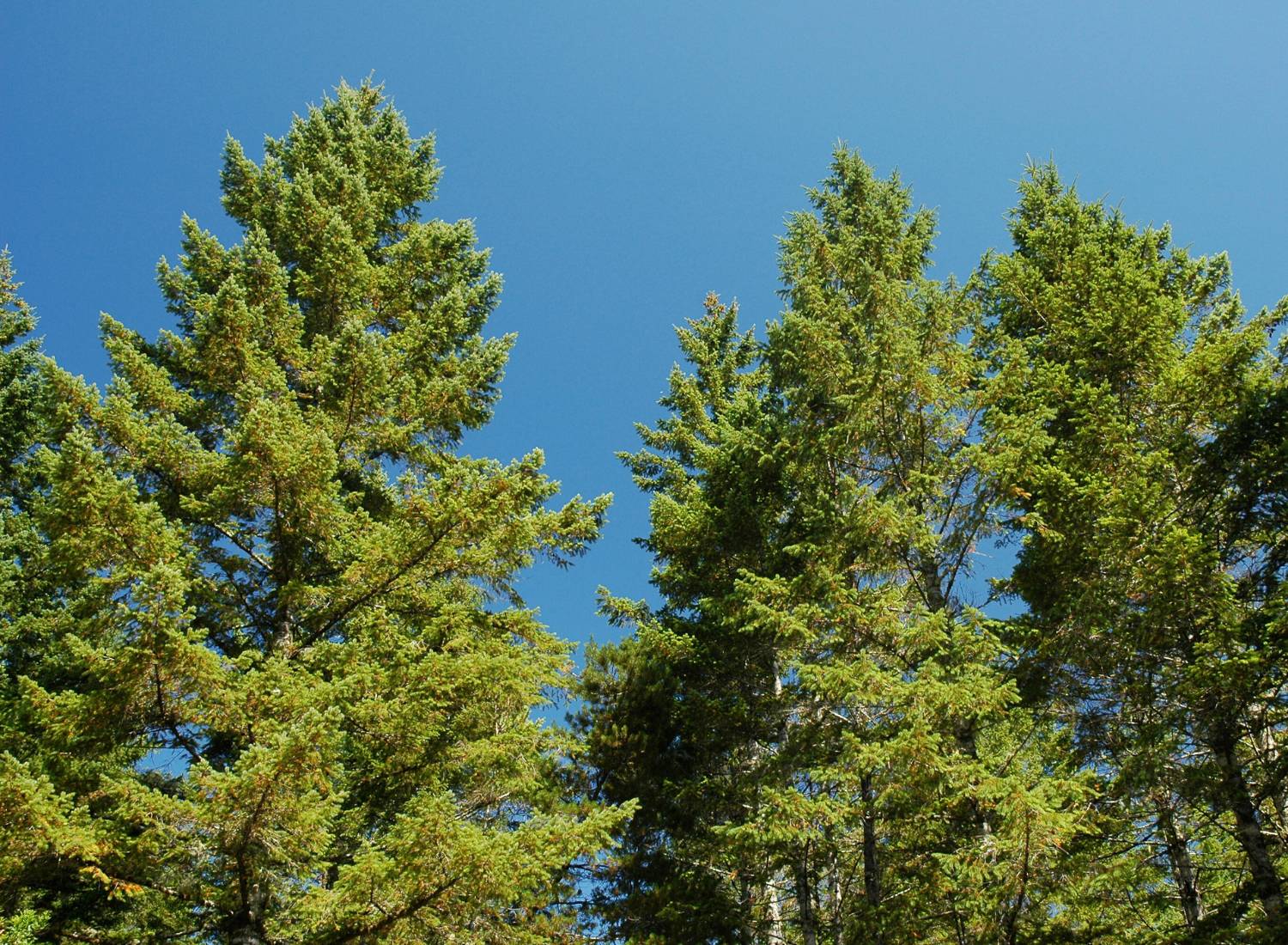
Overview:
Douglas Fir is a stately evergreen tree known for its lush foliage and adaptability. It provides excellent privacy and adds a classic touch to any landscape.
Pros:
- Moderate Growth Rate: Grows about 1-2 feet per year, offering a balance of speed and stability.
- Shade Tolerance: Can thrive in partial shade, unlike many other conifers.
- Versatility: Adapts to a wide range of soil types and climates.
Cons:
- Expensive: Douglas Firs can be pricier than other species.
- High Maintenance: Requires regular watering and occasional pruning for shape.
- Size: Grows up to 70 feet tall, making it more suitable for large properties.
Care Requirements:
Plant in well-drained soil and ensure adequate spacing for healthy root development. Water regularly, especially during the first few years. Prune lower branches if necessary to maintain a clean appearance.
Conclusion
Conifer trees offer a beautiful and effective solution for natural privacy fences. Whether you prioritize rapid growth, minimal maintenance, or cold tolerance, there’s a species to fit your needs. By selecting the right conifer and providing proper care, you’ll enjoy a lush, green barrier that enhances your property for years to come.